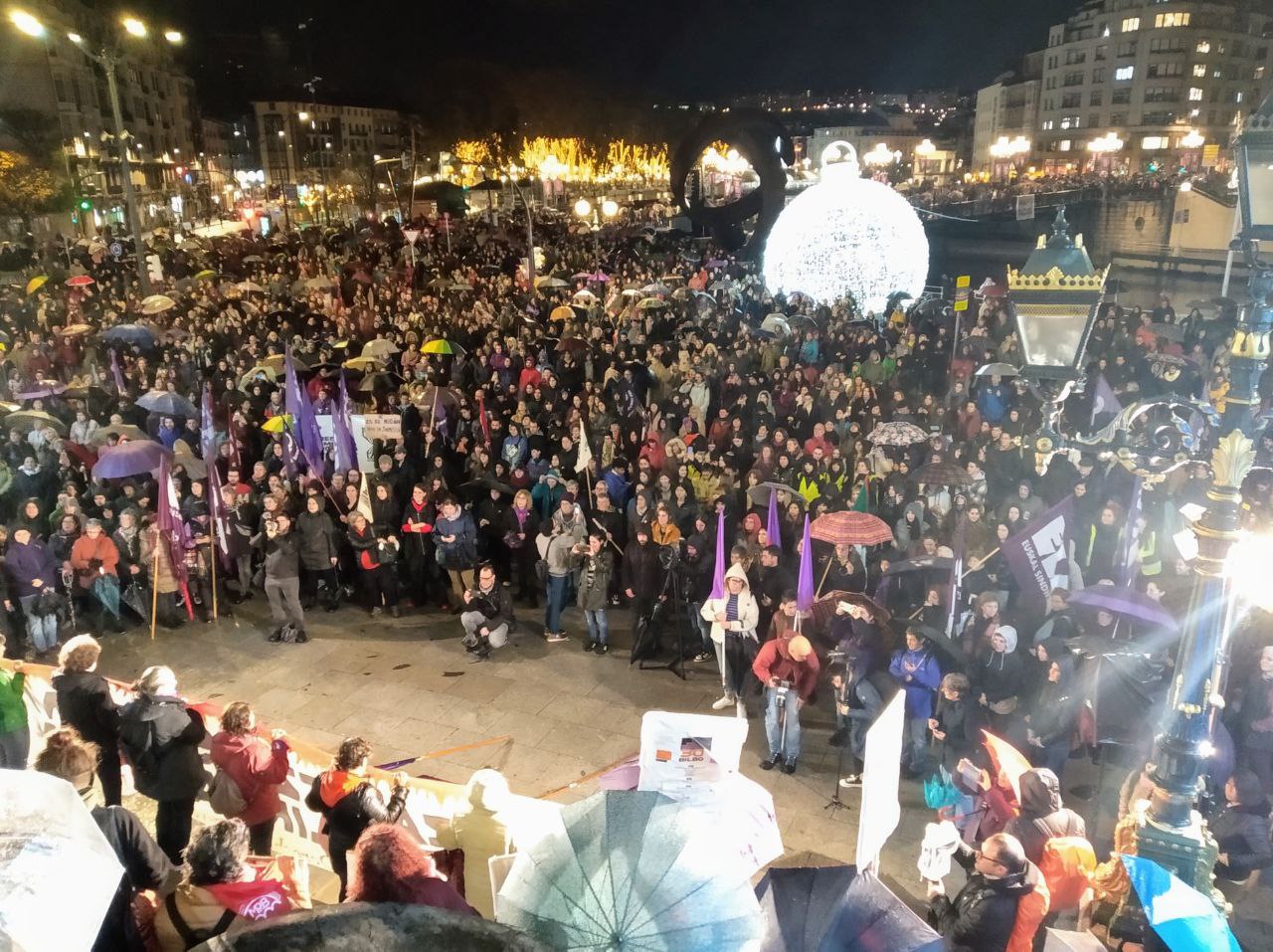Lives of all in the Center: “Today has been a milestone, but it’s not the end of anything”
- Coordinator Denak Bizitzak Erdigunea has valued the day as “historic” of the General Feminist Strike. The current care model has taken into account the most disadvantaged sectors and has denounced companies, institutions and parties for “trying to steal the discourse to feminism. He assures that the success of the strike has broken with the forces of the public-community care model. It has “demanded” the Basque governments to set up an “intersectoral bureau” to “urgently address the issue of care” and has called on the public to deepen the struggle for the People’s Agreement.

“Congratulations Euskal Herria! Once again we have demonstrated an enormous capacity to do, to organize and to mobilize the people!” This is how the assessment of the General Feminist Strike by coordinator Denon Bizitzak Erdigunea (DBE) has begun. “Today we take a tremendous step towards a community public care system,” he celebrated, ensuring that the day has been “historic.” “Today we have come out to change the world, because another system is possible!”
The feminist movement has recalled that it has long denounced the “care crisis and its global dimension” and the pandemic showed that it was “collapsed”. “All this required an answer.” The last answer was today's strike.
Allies, enemies, marginals
The IGR has applauded the road in alliance with surveillance sectors, trade unions or popular movements, and has denounced that multinational institutions, parties and companies have tried to “steal” feminist discourse to ruin and empty political content: “That’s why it’s been important that today our demands come to the streets to challenge institutions, to denounce entrepreneurs, and also to point out to men that they assume no responsibility in this area.”
“The surveillance regime in the Basque Country is absolutely supportive and familiar,” he said. “Stop doing business with our lives!” reproach companies, putre funds and institutions that have privatized care and turned it into business.
The coordinator has taken into account those most affected by the care model: household employees in general, residents in particular, migrant and racist citizens, rural population, pensioners and women pensioners in particular.
Short and long term
The IGR considers that the system is “collapsed”. It indicates that on the one hand we must provide an “immediate” solution to the most serious situations and on the other hand we must work “in the long term”: “Capitalism, patriarchy and beyond colonialism, is the time to dream and exercise in the future the community public care system we want.”
To this end, the feminist movement has called for the People’s Agreement presented in October by the tool coordinator herself. “Now is the time to make decisions and to make changes,” he explained, and in that way he has challenged the “Basque governments”.
Intersectoral Bureau and People's Agreement
“We are clearly addressing the Basque Governments: we demand the creation of an intersectoral table to urgently address the issue of surveillance. Do not ignore our demands. We call for political will in this emergency situation. In the governments, in the municipalities, in the foreign ministers in all the positions of responsibility, tomorrow,” the RGI claimed.
He points out that before the People’s Agreement becomes a reality there is a “long way”, “today’s has been a milestone, but it is not the end of anything.” But it ensures that the movement emerges “strong” from the strike and asks the citizens to put that force in favour of the People’s Agreement: “Organize, care and live everything we’ve created to this day! We have the Community Public Surveillance System to win!”
A decision by the Provincial Council of Álava has left over 150 people without home service, according to EH Bildu. The Navarre Thycna Association has denounced that many immigrant women need to have a room in exchange of 700 euros, domestic staff or an inmate. LAB denounces... [+]
The general feminist strike of November 30 allows us to reflect on the new look and steps taken from the gender perspective in the economy. While the conventional economy only seeks profit, the gender perspective focuses its attention on the life of society and the planet,... [+]
Feminisms have opened deep ancient debates. Among them, the care model and its systemic crisis. Earlier this year, the feminist movement in the Basque Country placed the problem of care among its priorities. The result of the reflection was decided to call for a general strike,... [+]
Conditions, time, consensus… There are many things to consider when calling a general strike. If more is a feminist strike, it is nowhere written what that is, and yet we know how difficult it is to move from the writings to the plaza and from the plazas to the workplaces. But... [+]
Pamplona
(Photos, ARGIA CC BY, S.A.)
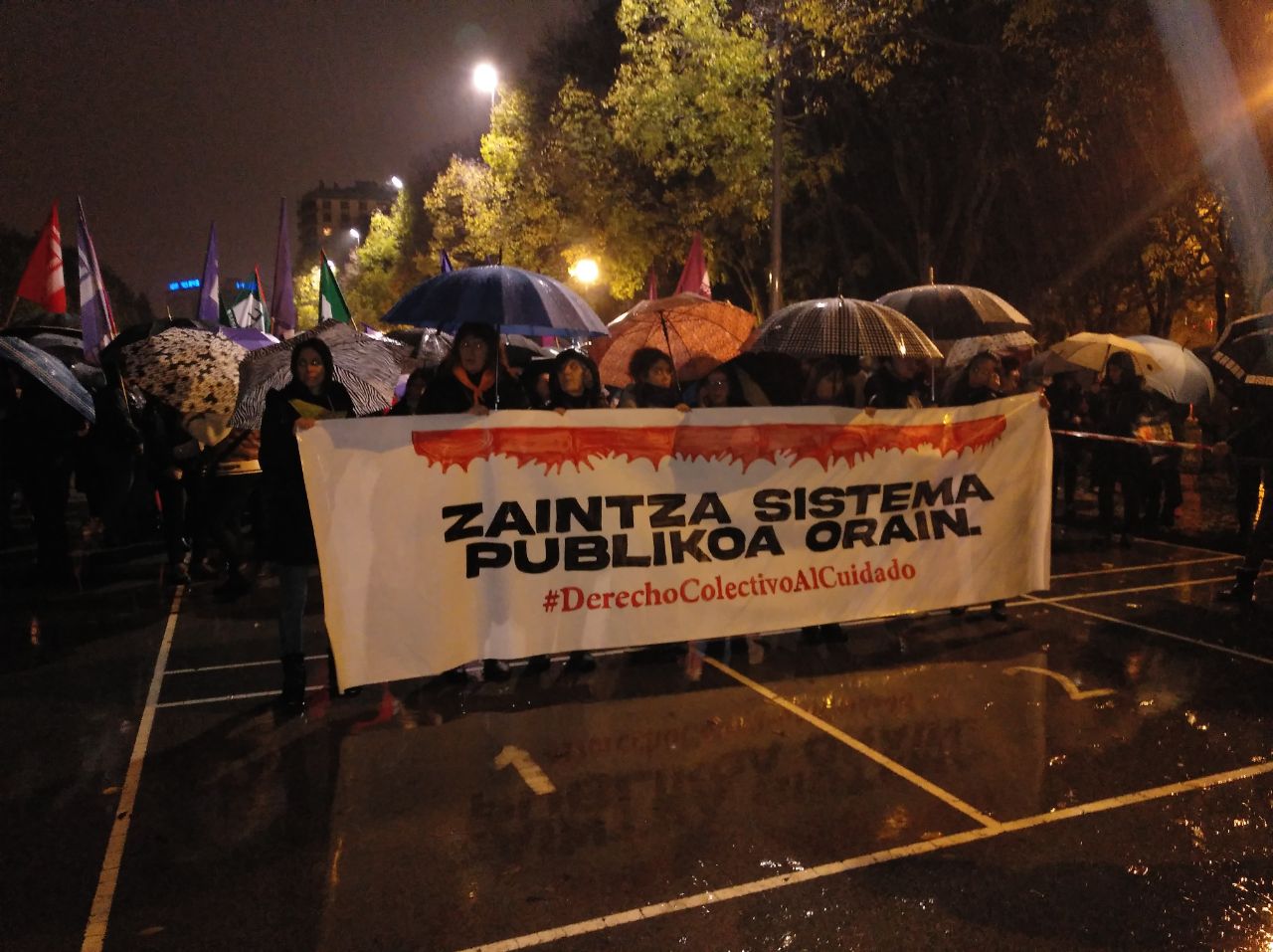
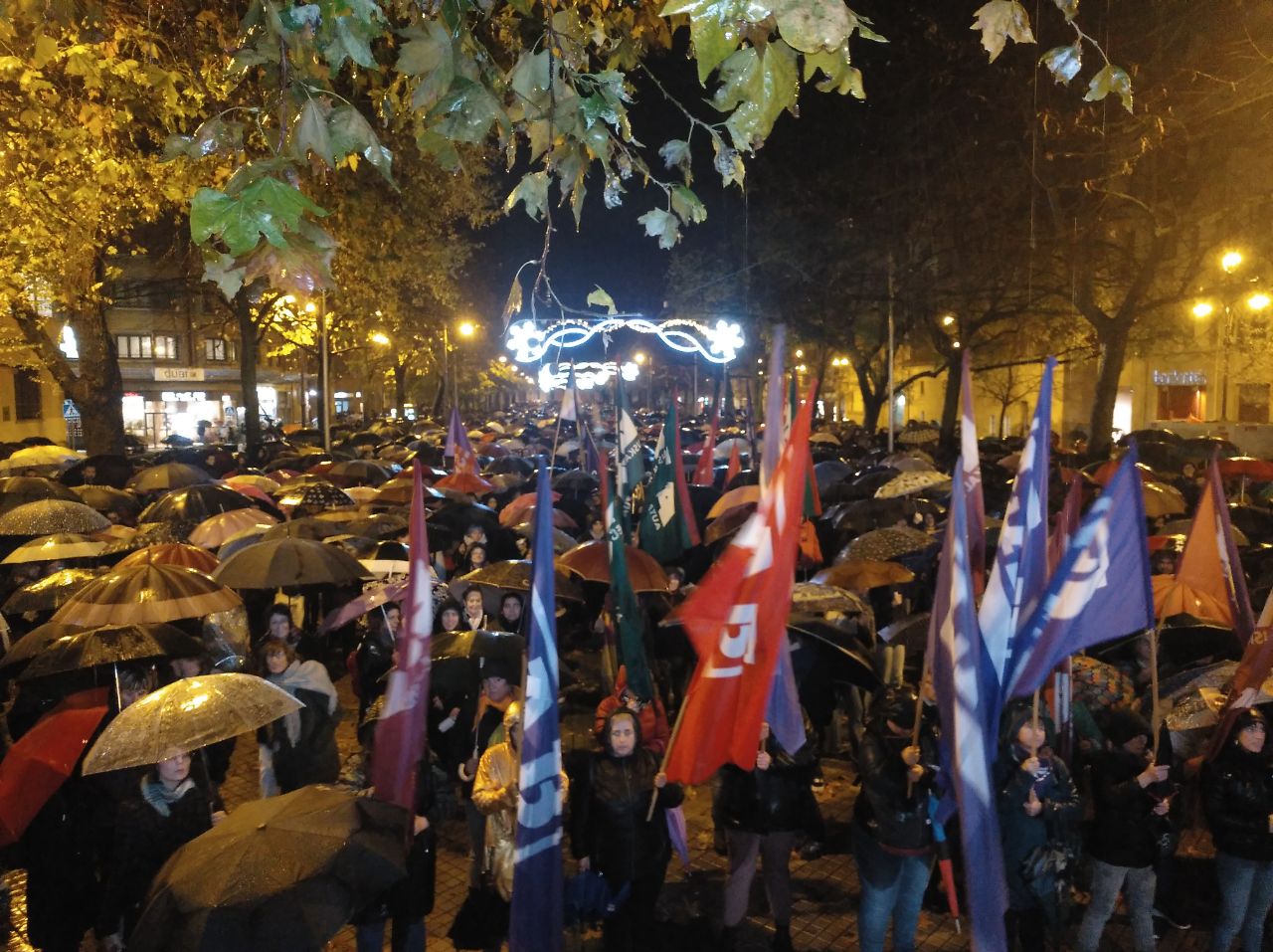
(Photos: Ekin)
.jpg)
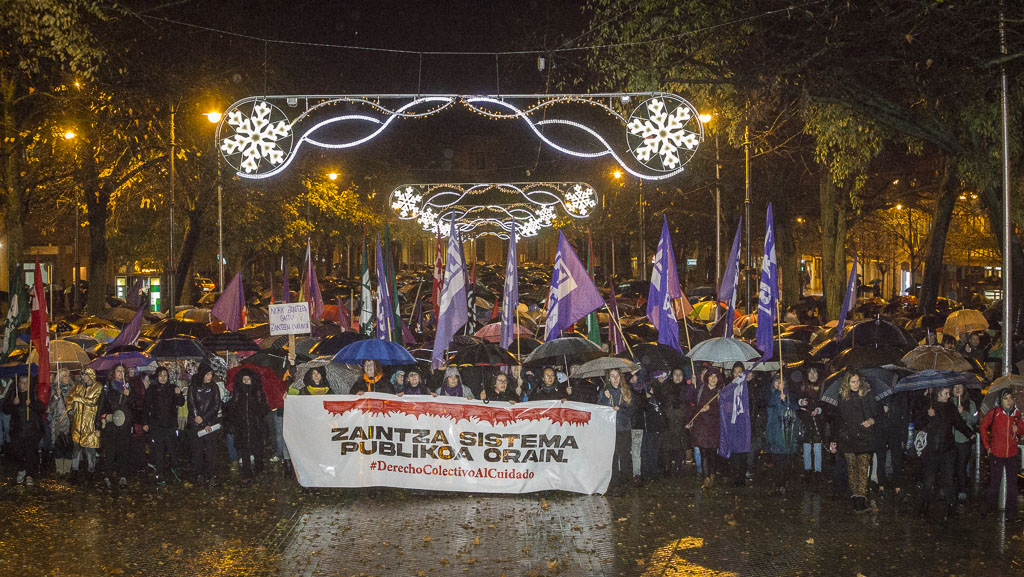
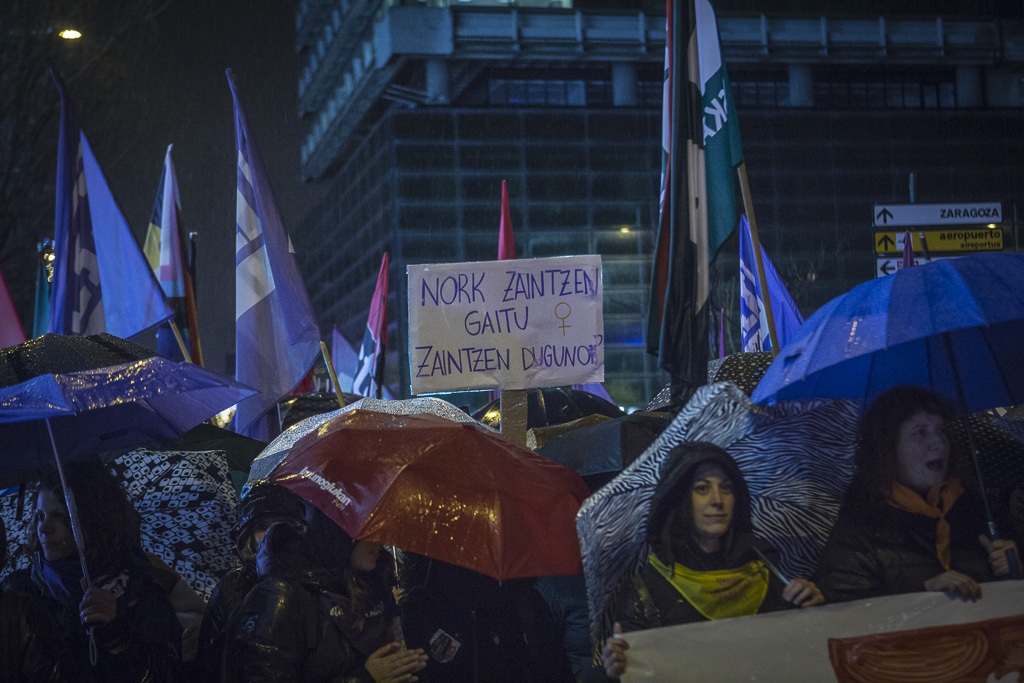
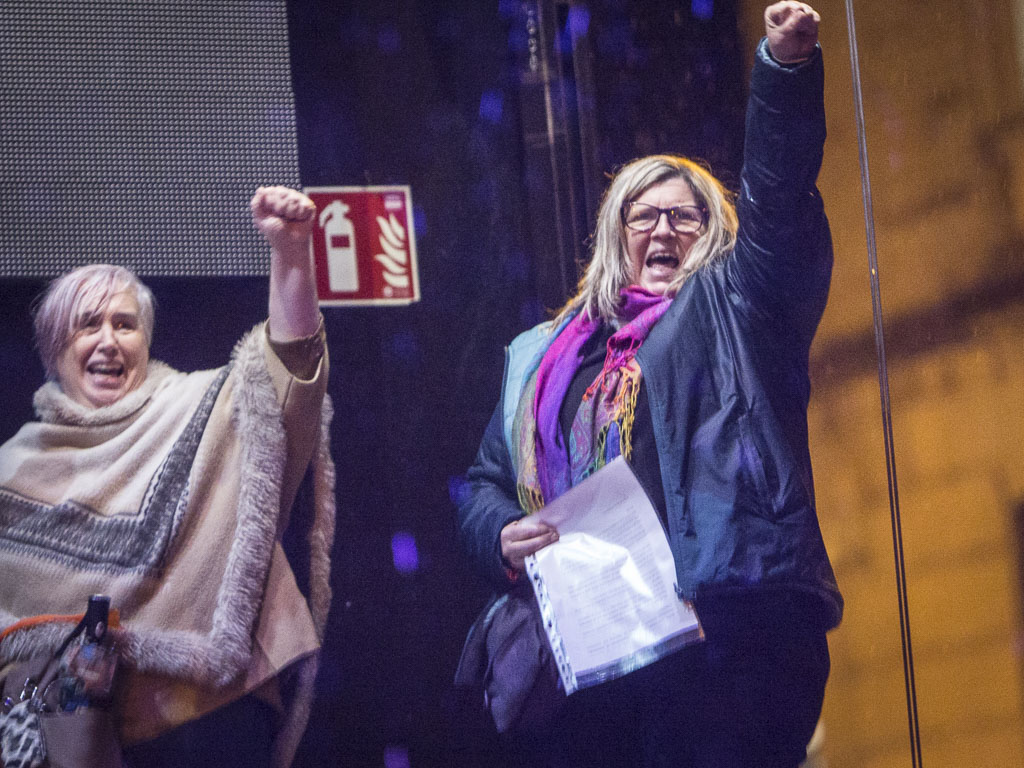
Voice video.
Vitoria (via Hala Bedi)









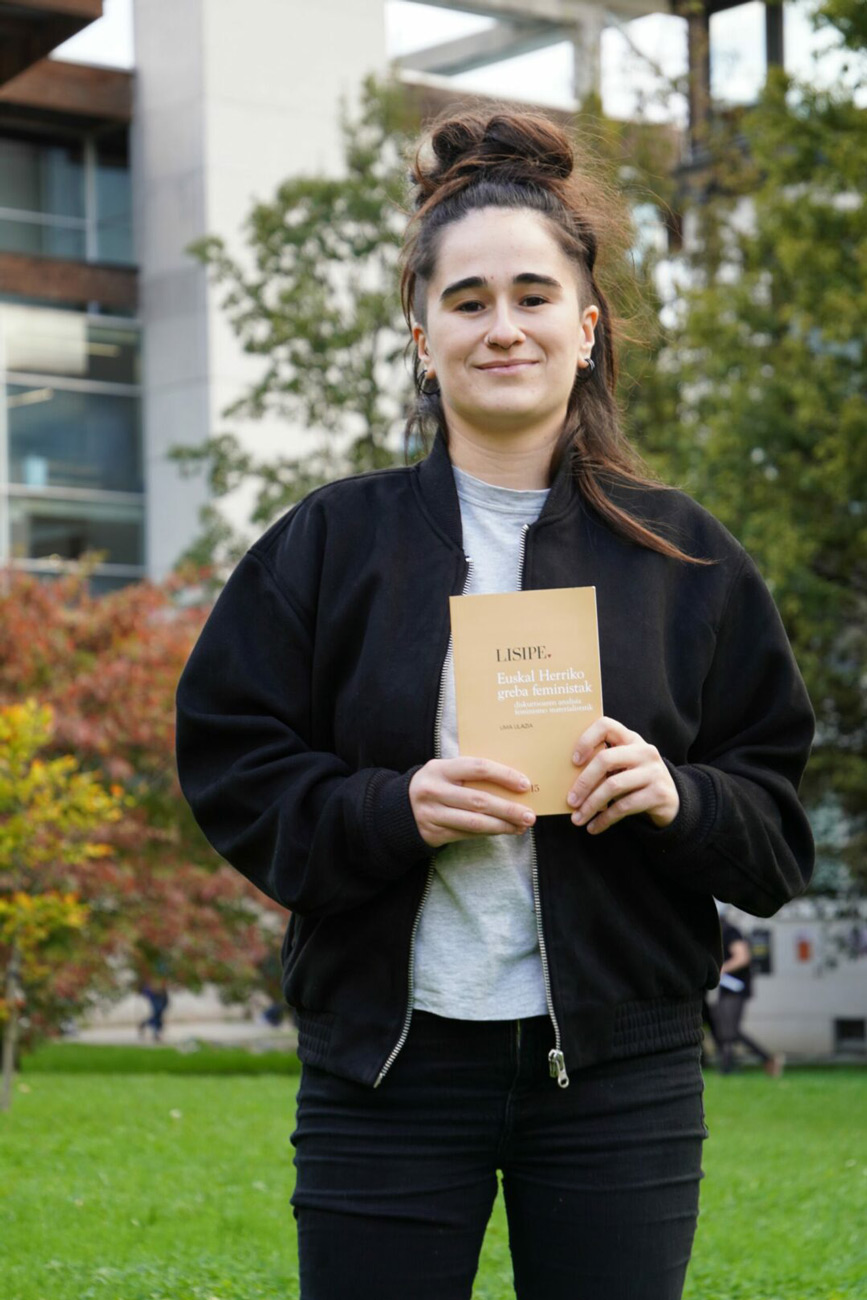
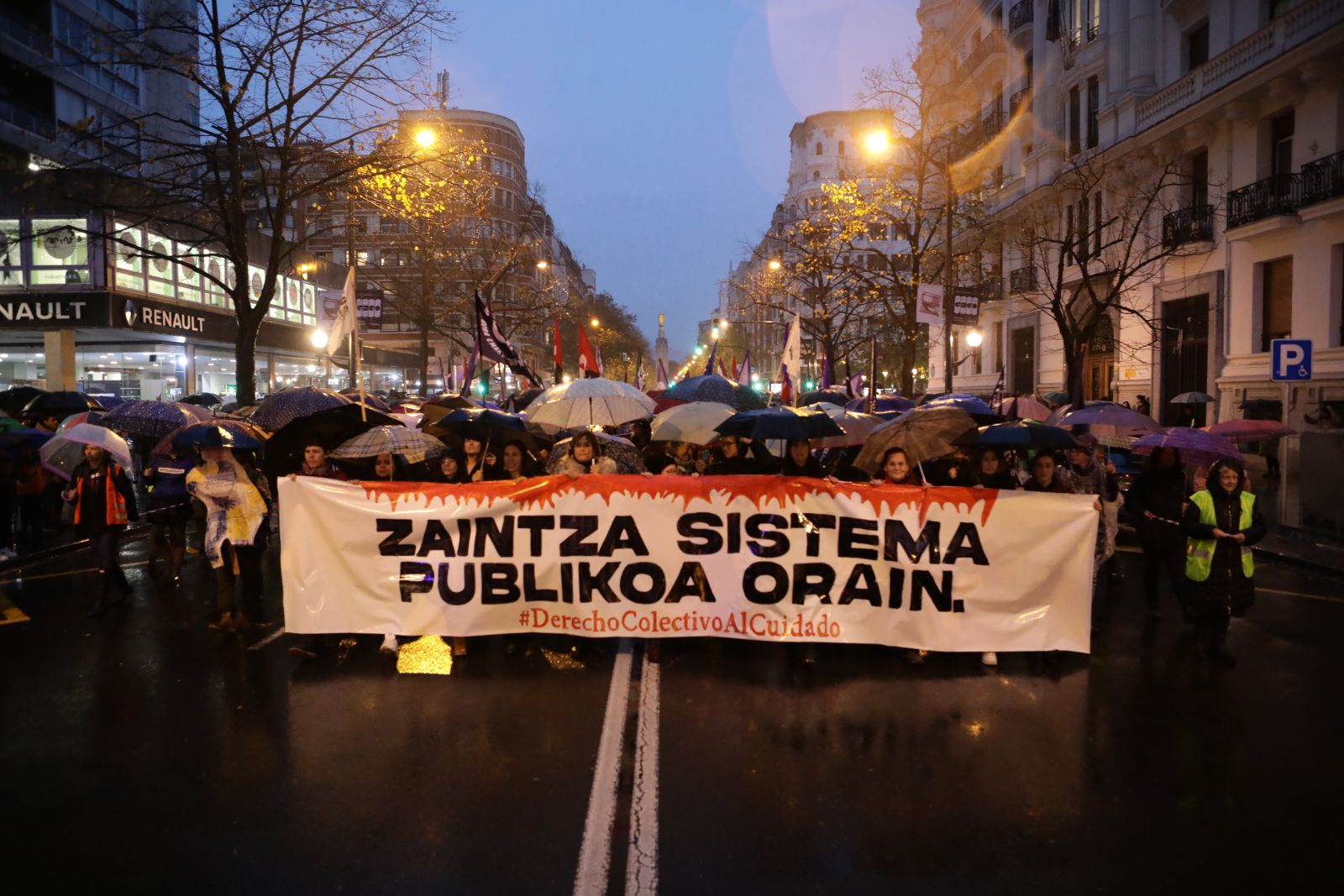





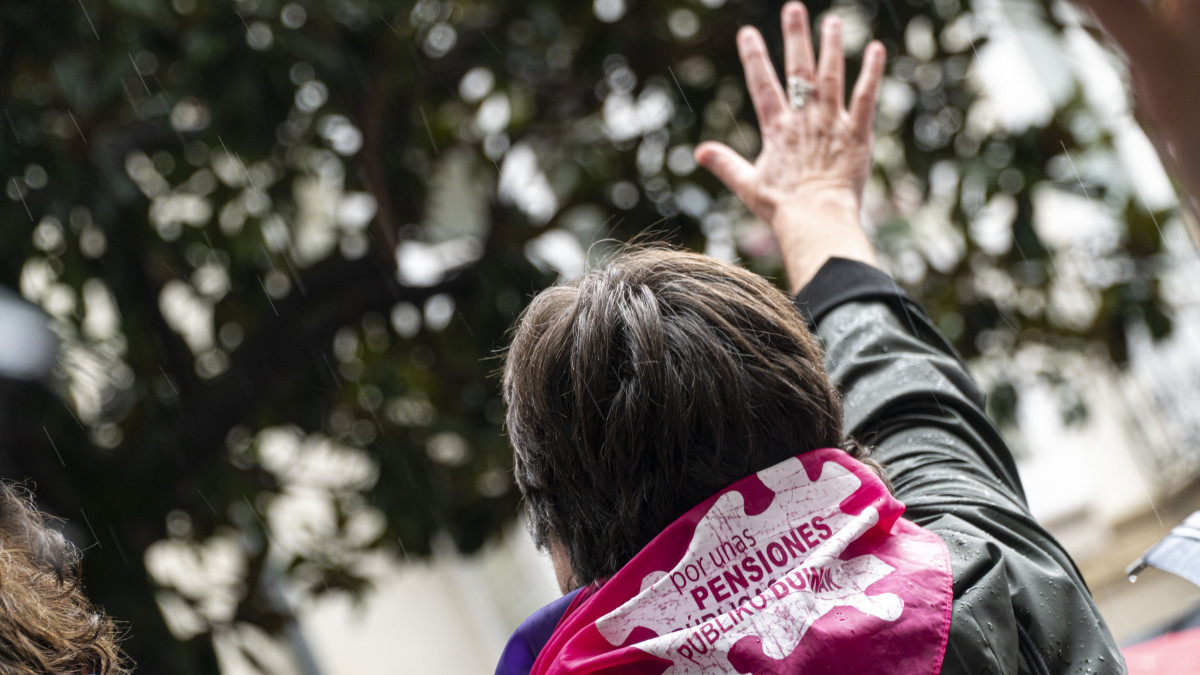


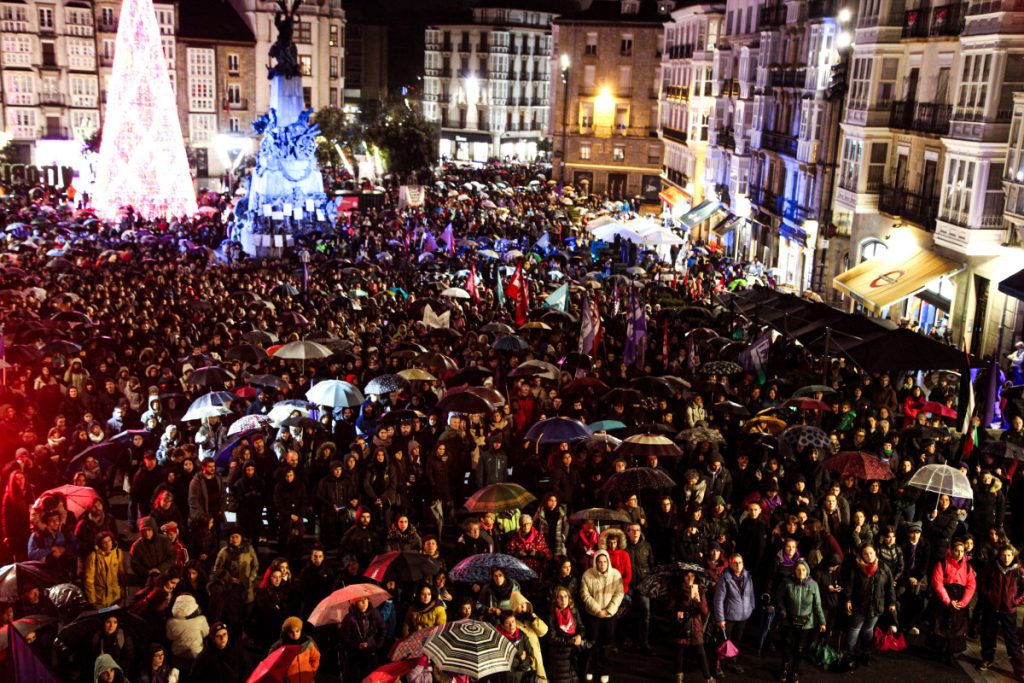
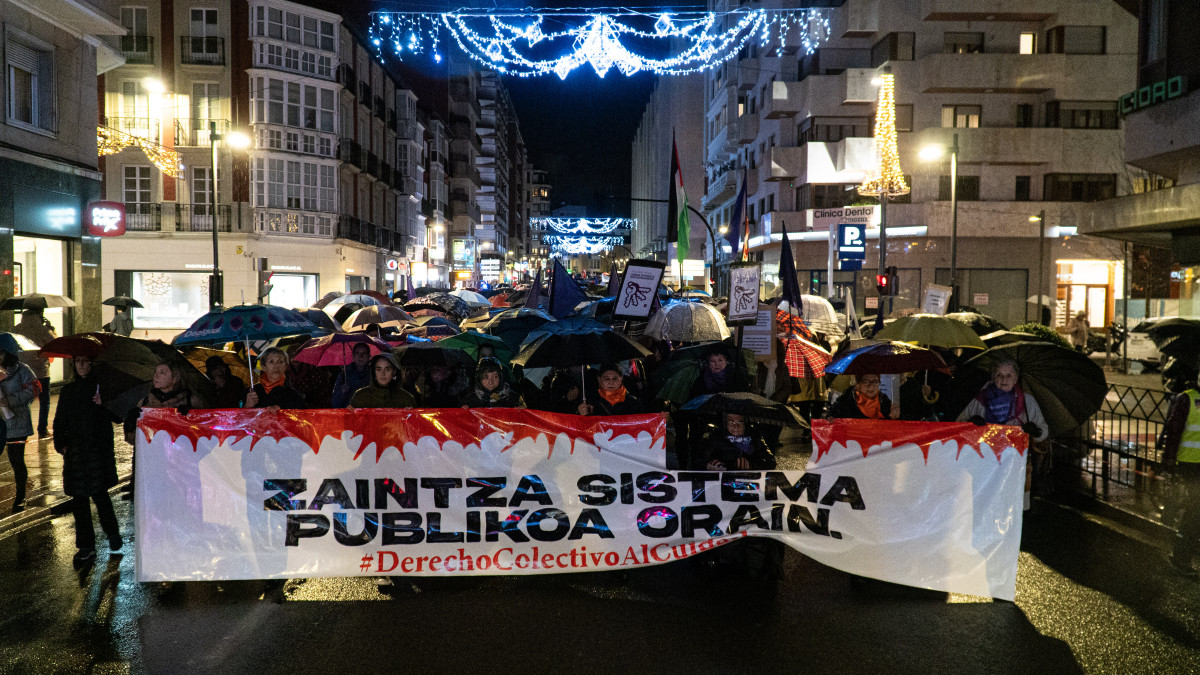 [+]
[+]